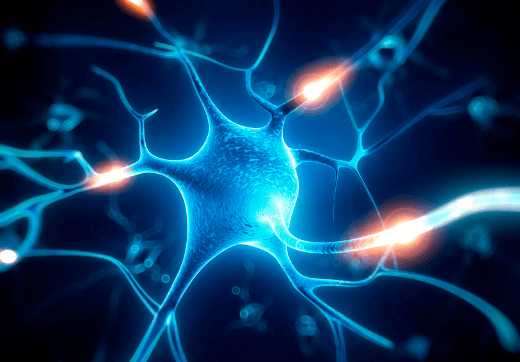Some people think emotions only play a role in romantic situations or in the heat of a physical fight. But emotions are everywhere; they are important for our decisions, help us better understand the world, and are crucial for interactions with others.
To maximize your success in life, you need to strengthen your people skills. And become an expert in self-management who can control your emotions even under fire.
Today’s success depends largely on having strong levels of emotional intelligence so you can develop strong relationships with others and yourself. There are many ways you can learn to become more emotionally intelligent.
But what impact do emotions have on your everyday life, and can emotional intelligence be improved? And how can emotions help you?
What is emotional intelligence?
Some people are very good at reading body language. They can judge at a glance what someone is thinking and can respond accordingly. It helps them to calm down angry coworkers or comfort an anxious friend.
Certain people are good at this because they have emotional intelligence. It is the ability to recognize and understand your own feelings and the feelings of others and influence those feelings. When you are good at “reading” people, you have high emotional intelligence or EQ.
There are four different elements of EQ:
- Self-awareness is the ability to understand your own feelings and behaviors.
- Self-management is about helping yourself in situations in which able to behave correctly.
- Social awareness Once you understand feelings and know how to manage your behaviors, you will know how to read the emotions of others. You can see what makes people feel angry, sad, or excited, and you will better read body language.
- Relationship management. When you understand your own behaviors and the behaviors of others, it enables you to build stronger relationships with close people in your life.
For instance, if you know one of your coworkers gets upset when criticized with EQ, you learn how to give feedback to which he will be able to respond effectively.
Do our emotions hold us back?
Emotions give you an advantage that can help you live a more fulfilled life. Such an advantage is that with emotions, we can learn from our memories.
The brain stores experiences and don’t just collect facts. It records feeling that help us learn from our experiences. Imagine you walk on a hot summer day barefoot on a beach. You probably will experience pain. So next time you visit the beach, you will remember this memory of pain. And this way you maybe bring shoes or don’t go when it is too hot.

With emotions, we also interpret the feelings of others which helps us predict their actions. For instance, when you are faced with an angry man. He has a loud voice, and his fists are clenched – you probably figured out his emotional state. If you know this, you can predict his future actions. He might want to attack someone.
The final advantage is that our emotions give us the drive to act. It is required to react quickly in situations. Take the angry man example. When you feel he might be close to choosing violence, your emotions will make you feel threatened or even angry. It prepares you to react quickly if he were about to attack someone.
But people who lose their capacity for emotions lose this drive to act.
How much do you know yourself?
While you might know what sort of thing you like or dislike, self-awareness is more than that. It is about deeply understanding your emotions so you don’t become overwhelmed by them.
You need to understand why you feel the way you do, even if you are angry or annoyed. When you are in a bad mood, it doesn’t necessarily mean you have a bad day.
Maybe you left your wallet at home or spilled your coffee all over your desk. On days like this, you might feel negative about everything because of small things, but this makes it even worse.
When you are in a bad mood, remember such feelings do pass. Whatever puts you in a bad mood is most likely not the end of the world. So why overreact?
Also, don’t lose sight of your self-awareness on good days, either. Often we tend to rush things when we are in a good mood.
Imagine you see an email where you get 75% off from your favorite store. You might want to buy everything you see.
At that moment, the excitement overpowers your other emotions. So you probably forget to pause and ask yourself if you really need the thing you are buying. You may regret it when the bills are due.
So check yourself and think if you get excited, don’t make rushed decisions only because you are caught up in the moment.
Always consider what consequences your actions might have.
How emotions affect our judgment and thinking
Our emotions are important for understanding and interacting with our environment. But they can also lead us to make mistakes.
Such mistakes can occur if we become very emotional. To make sound judgments, we to think clearly. Similar to a juggler, our minds can only handle so many items at once. When we experience a lot of emotions, our minds are flooded with alarming thoughts and disturbing images. So there is no room for rational thought, and our judgment is uncertain.
For instance, when you are frightened, you may overreact to situations thinking they are more dangerous than they actually are. If you are scared, you might hear a sound, thinking someone is coming, but it is just the wind.
Another mistake caused by emotions is when we act suddenly before we get the chance to judge the situation clearly. When information enters your brain, a fraction of it bypasses the part that is responsible for rational thought (the neocortex). And then directly enters the emotional brain.
If this information could threaten you, the emotional brain can trigger you to act suddenly without using your thinking brain. It is why you may get scarred in a dark forest and see a strange figure in the corner of your eye.
Our emotions can lead us to act irrationally when we are affected by old emotional responses. The emotional mind reacts to situations in the present based on past experiences, even when the condition is changed. For instance, someone who was physically bullied at school may grow up to be a strong man but still feels threatened by his former bully.
While emotions are important, they can take control of your mind and disrupt your thinking. So we require something to help us manage them effectively.
The link between Feeling and Thinking Brain
Our thought and feelings are intertwined. This happens because the thinking brain, where we develop our rational and the feeling brain for our emotions, are linked. They are connected by neuronal pathways.
Emotional intelligence depends on these connectors between the thinking and feeling brains. Any damage to these neuronal pathways can lead to emotional intelligence deficits.
For instance, a person that uses only their thinking brain will stop experiencing feelings. Their deficits in these areas include a loss of emotional self-awareness. After being lobotomized, patients got the connection between their two brains served. They lost their emotional capacity.
Another important connection between our two brains is the thinking brain’s role which corrects the work of the feeling brain. It is a process essential for emotional self-regulation.
Emotional self-regulation works in the following way: When you experience stimuli like hearing a loud bang, it will often send your emotional brain into overdrive. And the feeling brain automatically sees this stimulus as a threat and will respond by putting your body in an alert state.
Our thinking brain helps to regulate this process. When you hear a loud bang, your emotional brain sends an alarm to the thinking brain, which checks the stimulus to see what threat there is.
If it sees no danger, it calms down both the feeling and body, allowing one to think clearly again. It is why we don’t constantly overrate every sudden noise we hear.
But if you break the link between thinking and feeling, this process isn’t possible. For instance, in patients with a damaged thinking brain, the brain has it hard to regularize their feelings.
Can emotional intelligence be improved?
To not get overwhelmed with emotions, you need to use emotional intelligence (EQ). It helps you to recognize and manage your feelings without being controlled by them.
The first step of EQ is to be able to recognize and name your feelings. This step is vital for managing your emotions. Often people who cannot notice their own feeling are more likely to have violent outbursts. When you can recognize your emotions, you can become more aware often what causes them.
Your feelings in different situations depending on how you think about them. For instance, you see a friend passing you on the street but doesn’t acknowledge you. You might immediately think that she is in growing you on purpose. This might make you upset or angry.
However, if you stop and think about why she might not acknowledge you, you might find another reason to be less upset. The friend might not see you because she was lost in thought or wasn’t concentrating on her surroundings.
As you begin to recognize and manage your feelings, emotional intelligence can help you connect on archiving your goals.
For example, you need to learn for university. But you don’t like the subject and would much rather go watch a movie instead. Emotional intelligence allows you to manage these feelings.
While the subject might bore you, you could try to look at it from another angle. Maybe you find something that can motivate you—also, knowing how the movie will make you feel. You could save the gratification and the enjoyment until you have the time for it.
If students manage their workload in this way, they tend to do better at school.
Improving your self-awareness
There are a series of exercises to improve your emotional intelligence.
If you want to get more self-awareness and better self-management, you can practice using inner dialogues. This helps you to identify and name your feelings.
For example, if your close friend tells everyone about his relationship problems, you may feel upset. But with an inner dialogue, you can resolve this. Ask yourself, “Why am I hurt?” Because your best friend told his relationship problem to everyone but me first.
Now when you identify this feeling, you can use it to tell yourself, ” I may feel left out, but it is possible that he didn’t want to bother me because he knew I was very busy with work in the last few weeks. This helps you to feel less upset.
If you want to improve your empathy, try mirroring another person’s body language. It is useful as body language doesn’t only express emotions but also evokes them. So if you mirror another person’s comfort posture, you may feel more comfortable yourself.
To enhance your self-motivation and to think more positively, use the following advice:
The way you think about your success and failures has an impact on your ability to motivate yourself. Next time you experience failure and want to become more self-motivated, remember that phrase, “People who can convince themselves that failures are something they can learn and change from, don’t give up easily. They continue to try because success depends on the outcome of their own actions.
In contrast, those who see failure as a permanent personal deficit are likely to give up soon. They believe they can’t do much about their own success anyway. So if you want to be successful, you should try to avoid this thought process.
How to improve your self-management?
Often people find it challenging to manage themselves. When we try to have control, we often get sidetracked and feel the push to act differently. We also tend to give up things if they start to get rough.
Good self-management is an important part of having high emotional intelligence.
When you are faced with tough decisions, it is useful to make an emotion versus reason list.

Draw a table with two columns. In the first column, you write what your emotions are telling you to do. The second column is what logical reasoning tells you to do. With this exercise, you can balance each side so it doesn’t dominate the other.
Look which list has stronger points. Are your emotions stronger than your judgment? Or are there any logic holes?
For instance, if you want to decide whether you fire an employee. While his work isn’t as good, you like him a lot as a person. It is a great opportunity to use emotion versus reason list.
What you also can do for better self-management is to tell your friends about your goals. Your close circle can do a lot to motivate you and help you stay on track. If you tell your friend what you want to accomplish, they will hold you accountable. It is a great source of motivation; after all, you don’t want to let your friends down.
Imagine you struggle to meet deadlines very often, and you want to change them. You can pay one of your friends $100 every time you miss a deadline. This would most likely help you change your behavior for the better.
Some waiters always seem to know what their guest wants. They know who intensively wants to be left alone and who needs special attention.
Such people have a high level of social intelligence. To become more socially aware, you need to consider two things.

First, watch a person’s body language to understand his feelings and plan your responses accordingly.
Use a head-to-toe body language assessment. Check the eyes first if they show a lot of emotional signals. When someone blinks too much, it might indicate deception, for example. Then move to the mouth. Does the smile look sincere or fake? Only an authentic smile is truly sympathetic.
Next, check the person’s shoulders. Are they tight or bent? Shoulders can express confidence or even shyness.
When you have read the message of what a person’s body is communicating, you can adapt yourself to it. So if someone is angry, you shouldn’t bombard him with questions. Wait until he is in a better mood.
Also, make sure to greet a person by his name. Doing this helps you come across as warm and trustworthy. People with high social awareness often don’t address others as Sir or Mrs. So and so. Instead, they want to learn the people’s first names.
Addressing a person by their first name will strengthen the relationship with him. You can learn a lot about someone from their name (like family history or identity or if they have a nickname.
You can use this knowledge to bond further and make the person feel appreciated.
Learning how others feel
It is unlikely you will develop a happy life by only managing your mind. Other people play a large role in your existence, so you also need to train your social interactions with them to live a fulfilled life.
With emotional intelligence, you can archive good social interactions because you can put yourself in other people’s shoes. Knowing how you feel in certain situations helps you see how others will feel in a similar moment.
You can also discover the emotions of others when you analyze their nonverbal signs. It means judging a person’s mood by looking at signs like their facial expressions or body language.

For example, if you see someone crying and looking at the ground, you will probably conclude he is sad and had a bad experience. Such cues are often automatically identified without any conscious effort.
It allows you to empathize with others. Emotional intelligence enables you to behave in a way that you get more favorable reactions from others.
Imagine someone close to you always makes the same mistakes over and over again. You need to tell him about this to change it, but you need to do it the right way. Otherwise, you hurt his feelings, and he may become angry or defensive and less likely to change his ways. But if you emphasize with him and imagine how you will feel, you can act in a way so he is more willing to change.
People with emotional intelligence can develop social attitudes like teaching others, resolving conflicts, or managing the team. This attitude helps them maintain better relationships in the social environment.
Maintaining and Building relationships
Most people know this feeling you promised a friend to keep in touch even if she has moved to another town. The problem is such a promise are, a lot of times, easily broken. But why does this happen?
Well, it takes time and effort to maintain relationships, and most of us just can’t commit. Still, the ability to build strong relationships is crucial for emotional intelligence.
To build and maintain relationships efficiently, you need first to check your own body language. So you don’t send mixed signals, your body, voice, and behavior give away a lot of information. It is a good idea to avoid confusing others. Make sure your body transfers clearly what you have to say because it is frustrating to receive mixed signals.
Imagine you need to congratulate an employee for great work, but you are upset because you had a fight with your partner in the morning. If you mumble through your speech while being angry, your compliment won’t seem sincere, and your body language won’t match your message. So try to be in the right mood when you want to show someone appreciation.

It is important to listen to other people’s thoughts and read their emotions. It gives you more insight into what a person could be thinking and shows you care about their thoughts.
What is also important to building future relationships is feedback from the people in your life. Feedback can help you improve your relationships, yet it is hard to respond to feedback.
We often take feedback or just ignore it because who likes being criticized? But you can learn from constructive criticism. Remind yourself that the right person offering it is really looking out for your best interests. So try to use feedback to improve yourself.
Also, thank anyone who gives you helpful feedback so your loved ones know that you appreciate them.
How to use emotional intelligence
To use emotional intelligence in your everyday life, you can use the following advice;
You can avoid misunderstanding in relationships if you acknowledge men and women deal with emotion in different ways. Typically, girls are raised to speak about their feelings and connect through intimate talk, while boys learn to minimize their feelings, which might make them appear more vulnerable.
For instance, if female partners complain about their problems, the male might instantly offer advice. But this could be the wrong approach. Often if a woman complains about a problem, she is seeking validation. She actually just wants her partner to listen and that he shows understanding.
So the advice might be misinterpreted as a rejection of her rather than an attempt to help. It would be better to listen carefully.
Still, it is important to encourage people, especially children, to talk about their feelings. This will help enhance their emotional self-awareness, and it builds trust with the person.
Another piece of advice is if you are very upset during an argument, try to take a break and calm down. Strong emotions can distort your thinking, so you might regret something you say or do. A cool-down period may help.
The final piece of advice If you have wanted to criticize someone, be specific and offer a solution. Pick an incident and point out exactly what could be done differently and what was well done. Make yourself clear to not make the recipient feel confused and evaluated.
Try to be specific and constructive when you criticize someone and point out in a friendly what could be done differently and what was done well.
Indifferent if they succeed in something, praise their efforts and self-control. It gives them the ability to improve their lives through their own actions.
Why Emotional Intelligence is good for your health
Emotional intelligence is just as important as a high IQ to become more successful in life. Those who can better control their impulses are not only in school but also in the work environment better, as studies have shown.
EQ also helps us to live a healthier lifestyle, especially when we go through a stressful period. It helps us when our heart is put under immersive stress because our blood pressure is raised, and it leaves us at risk of cardiac arrest.
Stress can also weaken your immune system. To avoid the dangers of stress, you need to learn to acknowledge stressful feelings like anxiety and anger. It will help you reduce those feelings that affect your health.
Given the great impact that our emotional intelligence on success and health has, there is way too little emphasis on emotional skills in the school curriculum.
Why children need to learn emotional intelligence
Poor emotional intelligence can have negative effects on our society. It plays a major factor in increasing crime rates. Studies show that violent teen criminals find it difficult to control their impulses and also hard to read people’s facial expressions.
A child’s welfare is determined by their emotional competence. If children grow up in an environment surrounded by emotionally intelligent people, they also will have high levels of it. So when the parents are good at regulating their own emotions, their children show lower stress levels and are more liked by their peers.
In comparison, children with deficits in self-awareness, empathy, or impulse control are more likely to develop mental health problems and have more issues at school.
It shows that the emotional intelligence of children is central to the future of our communities. Today’s children will have a big impact on further society no matter if as parents, managers, politicians, or doctors. It will help if the people in charge are more empathic so they can resolve conflicts and don’t blindly attack.
Several social factors shape future communities’ well-being, but emotional intelligence is one of the most influential ones.
Conclusion
Our emotions serve as sources of orientation and push us to take action. But they can also make us act irrationally. It is why emotional intelligence is a skill that enables you to recognize and imagine your emotions and both your own and the feelings of other people.
Emotional intelligence is an important factor for success in school, job, and life, and it can help us have a more fulfilled life.
You can increase your emotional intelligence by focusing on understanding and controlling your emotions and behaviors first. Then you can build your relationships by paying attention to body language and addressing by their name. Balance your emotions by using rational thinking and try to improve yourself through feedback.
With high emotional intelligence, you not only relate better to others, but you can also improve yourself.
FAQ
Q: What is emotional intelligence?
A: Emotional intelligence (EI) is the ability to identify and manage emotions, both in yourself and others.
Q: Can emotional intelligence really be improved?
A: Yes, emotional intelligence can be improved with practice and training.
Q: Who is Daniel Goleman and what is his relation to emotional intelligence?
A: Daniel Goleman is a psychologist and science journalist who wrote a best-selling book in 1995 called “Emotional Intelligence.” This book brought the concept of emotional intelligence to a global audience and made it a mainstream topic.
Q: How does emotional intelligence differ from IQ?
A: IQ measures cognitive abilities like problem-solving, reasoning, and logic. Emotional intelligence, on the other hand, measures social and emotional skills like empathy, communication, and conflict resolution.
Q: What is the importance of emotional intelligence in leadership?
A: Leaders who have a high level of emotional intelligence are more effective in managing teams, resolving conflicts, and creating a positive work environment. They are also better able to adapt to change and think creatively.
Q: What are the components of emotional intelligence?
A: The four components of emotional intelligence are self-awareness, self-management, social awareness, and relationship management.
Q: How can someone improve their emotional intelligence?
A: Emotional intelligence can be improved through training and practice. This may include learning to manage emotions, improving communication skills, and developing empathy and self-awareness.
Q: What is emotional intelligence training?
A: Emotional intelligence training is a program designed to improve a person’s emotional intelligence. It may include workshops, coaching, and assessments to help individuals better understand their strengths and weaknesses in this area.
Q: Why is emotional intelligence important?
A: Emotional intelligence is important because it has been linked to improved job performance, better relationships, and increased overall well-being. It is also a key competency for success in many organizational settings.
Q: What role does emotional intelligence play in interpersonal skills?
A: Emotional intelligence is a key component of interpersonal skills. It allows people to effectively communicate, empathize with others, and manage conflicts.
